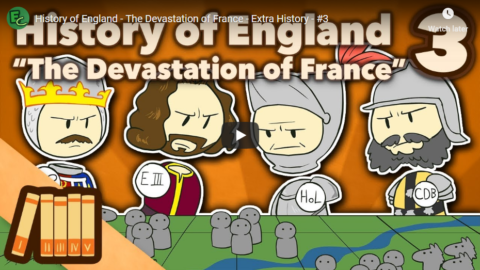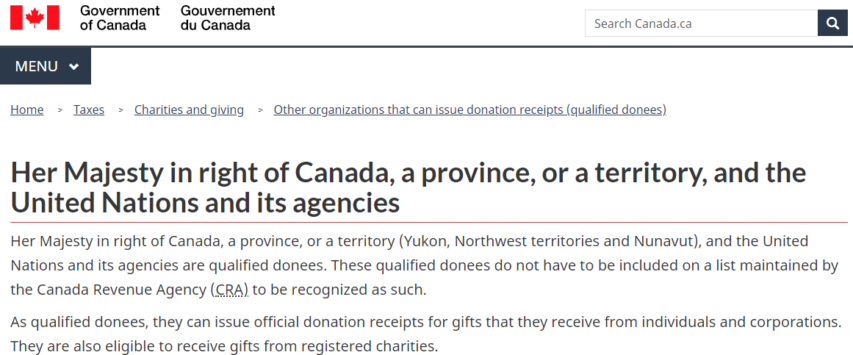Extra Credits
Published on 8 Jun 2019From the end of the battle of Crecy, Edward charged on to besiege Calais (successfully), and then returned home. Right about then was when the Black Plague hit Europe head-on. But Edward carried on as king establishing order among his subjects, forming the Knights of the Garter. In France, John le Bel, son of Philip, had learned from the French defeats and was making small victories here and there…
In the middle ages, pillaging and murdering your way across Northern France was clearly considered an appropriate father-son bonding opportunity.
Thanks again to David Crowther for writing AND narrating this series! https://thehistoryofengland.co.uk/pod…
Join us on Patreon! http://bit.ly/EHPatreon
June 9, 2019
History of England – The Devastation of France – Extra History – #3
The blog as a modern “commonplace book”
I’ve been blogging continuously for over fifteen years, but I’ve never found — or even considered — a single unifying theme for the blog. There are consistencies over the years, like the QotD posts, but in general the blog acts as a place for me to note things that interest, excite, or agitate me. After my grandfather died in 1979, I inherited a few of his notebooks, which included scores of lists on all kinds of things … my grandmother said it was all gathered to help with crossword puzzles, but the range of information was much wider than you’d normally find in crosswords. I think, had he lived long enough, my grandfather would have been a dedicated blogger. The blogging world has a lot of blogs like mine, where the blogger notes seemingly random bits of information, and this is far from new: they used to be called “commonplace books“:

Anonymous mid-17th century manuscript containing poems by various authors, in various hands, including Shakespeare’s second sonnet.
Wikimedia Commons.
Commonplace books (or commonplaces) are a way to compile knowledge, usually by writing information into books. They have been kept from antiquity, and were kept particularly during the Renaissance and in the nineteenth century. Such books are essentially scrapbooks filled with items of every kind: recipes, quotes, letters, poems, tables of weights and measures, proverbs, prayers, legal formulas. Commonplaces are used by readers, writers, students, and scholars as an aid for remembering useful concepts or facts. Each one is unique to its creator’s particular interests but they almost always include passages found in other texts, sometimes accompanied by the compiler’s responses. They became significant in Early Modern Europe.
“Commonplace” is a translation of the Latin term locus communis (from Greek tópos koinós, see literary topos) which means “a general or common topic”, such as a statement of proverbial wisdom. In this original sense, commonplace books were collections of such sayings, such as John Milton’s example. Scholars now understand them to include manuscripts in which an individual collects material which have a common theme, such as ethics, or exploring several themes in one volume. Commonplace books are private collections of information, but they are not diaries or travelogues.
In 1685 the English Enlightenment philosopher John Locke wrote a treatise in French on commonplace books, translated into English in 1706 as A New Method of Making Common-Place-Books, “in which techniques for entering proverbs, quotations, ideas, speeches were formulated. Locke gave specific advice on how to arrange material by subject and category, using such key topics as love, politics, or religion. Commonplace books, it must be stressed, are not journals, which are chronological and introspective.”
By the early eighteenth century they had become an information management device in which a note-taker stored quotations, observations and definitions. They were used in private households to collate ethical or informative texts, sometimes alongside recipes or medical formulae. For women, who were excluded from formal higher education, the commonplace book could be a repository of intellectual references. The gentlewoman Elizabeth Lyttelton kept one from the 1670s to 1713 and a typical example was published by Mrs Anna Jameson in 1855, including headings such as Ethical Fragments; Theological; Literature and Art. Commonplace books were used by scientists and other thinkers in the same way that a database might now be used: Carl Linnaeus, for instance, used commonplacing techniques to invent and arrange the nomenclature of his Systema Naturae (which is the basis for the system used by scientists today). The commonplace book was often a lifelong habit: for example the English-Australian artist Georgina McCrae kept a commonplace book from 1828-1865.
Will Britain Remain?! – WW2 – 041 – June 8 1940
World War Two
Published on 8 Jun 2019As the battle for France is still raging but looks like a ringing victory for Nazi Germany, and the encircled troops in Dunkirk have been evacuated, will Great Britain remain in the war? If so will British forces remain in continental Europe? In fact will Great Britain even be able to remain an independent nation, or also fall to the Nazis?
Join us on Patreon: https://www.patreon.com/TimeGhostHistory
Or join The TimeGhost Army directly at: https://timeghost.tvFollow WW2 day by day on Instagram @World_war_two_realtime https://www.instagram.com/world_war_t…
Join our Discord Server: https://discord.gg/D6D2aYN.
Between 2 Wars: https://www.youtube.com/playlist?list…
Source list: http://bit.ly/WW2sourcesWritten and Hosted by: Indy Neidell
Produced and Directed by: Spartacus Olsson and Astrid Deinhard
Executive Producers: Bodo Rittenauer, Astrid Deinhard, Indy Neidell, Spartacus Olsson
Creative Producer: Joram Appel
Research by: Indy Neidell
Edited by: Iryna Dulka
Map animations: EastoryColorisations by Joram Appel, Spartacus Olsson and Norman Stewart.
Eastory’s channel: https://www.youtube.com/channel/UCEly…
Archive by Screenocean/Reuters https://www.screenocean.com.Sources:
IWM: H 1622, H 1686, HU 1150, COL 294, H 1631, H 1700, HU 41240
The Royal Court Photo ArchivesA TimeGhost chronological documentary produced by OnLion Entertainment GmbH.
From the comments:
World War Two
3 days ago
Insecurity reigns in Europe now that the Germans have managed to take the Netherlands, Belgium and force a large part of the British army out of mainland Europe. Is this it? Not much seems to stand in the way of a total German victory, and that raises questions in France and Britain. Many of you already know this, but it’d be a waste if not everyone does, so I’d like to point you all to our second YouTube Channel called ‘TimeGhost History’. We’re currently making a Between Two Wars series about the interwar years, which gives a lot of context and background to the things we tell on this channel. You can check that out right here: https://www.youtube.com/channel/UCLfMmOriSyPbd5JhHpnj4Ng
People who call for higher taxes are almost always hypocrites
And the numbers prove it:
There are many people who tell us that taxation in the UK is too low. Just think of all the gorgeously bureaucratic things that could be done if only the government had more money! Then there’s the number of people who actually do pay more tax on the basis that they think the government should have more money. The second being a rather smaller number than the first.
Which does bring us to that basic point that economists do insist upon making. Revealed preferences are a much better guide to what people do in fact believe than are expressed. Or, as folk wisdom has it, talk is cheap. That many shout that taxes should be higher – usually to insist that them over there should be taxed more – is interesting and amusing. But the actual number of people who really believe taxes should be higher is the number of people who voluntarily offer up more of their own hard earned to the government.
Which means that, according to the aggregate views and actions of the population of Britain taxes last year were too low by exactly the amount of £11,069. Everyone else is just virtue signalling:
Donations to the Treasury have dwindled in recent years, however, even as the country’s debt remains relatively high. There were just 14 donations and bequests to reduce the national debt in the 2018-19 tax year, totalling £11,069, the UK Debt Management Office said.
That is the revealed preference of us all in aggregate.
It’s not just the UK where the number of people demanding higher taxes don’t actually put their own money where their mouths are — it’s true in Norway, the USA, and even the City of Toronto.
For ultra generous Canadians, Her Majesty will happily accept your donations here. To prove that you’re even more devoted to the challenge, you can even forego the tax credit, too!
Making the legendary service Khukuri/Kukri of British Gurkhas – KHHI Nepal
KHHI Nepal
Published on 26 Mar 2018See how a scrap of steel is converted into a piece of mastery craft by our men @ duty. All bear hands, hard labor, years of experience and great skill. Pls enjoy it!!
Is the original 2016-17 British Gurkhas Issue issued to the new recruits as their training, exercise, utility and even as a combat knife.
Product link :
https://www.thekhukurihouse.com/2016-17-british-standard-issue-bsi-2-kukri#makingkhukuri #bsikukri #servicekukri #gurkhaknife
QotD: What is economics?
Probably the most common definition is “the science of allocating scarce resources to diverse ends.” [Michael] Watts offers Marshall’s definition: The study of mankind in the ordinary business of life. Neither of those is what I think of as economics. Still less is it the study of the economy, which I suspect would come closest to what most people think the word means.
To me, economics is that approach to understanding behavior that starts from the assumption that individuals have objectives and tend to take the acts that best achieve them. That is what economists mean by “rationality,” and it is the assumption of rationality that is, in my view, the distinguishing characteristic of economics. What I am looking for are works that tell us something interesting about the implications of that assumption.
Someone at some point suggested Orwell’s Down and Out in Paris and London. It is an interesting book, although much too long for my purposes. But what makes it interesting, economically speaking, is not the vivid picture of poverty in the period between the wars but particular details relevant to implications of rational behavior.
I can give, by memory, an example. Orwell observed waiters in a fancy Paris restaurant, out of sight of the diners, spitting in the dishes they were going to serve. In an idealized market context, the waiter would never spit in the dish unless the value to him of doing so was more than the disvalue to the patron he was serving, which is unlikely. But throw in the inability of either the patrons or the waiter’s employers to monitor the waiter’s behavior and any benefit to the waiter of expressing his hostility is a sufficient incentive to make him do it. That suggests the further point that, when you cannot monitor someone’s behavior, his preferences matter — you want the job he is doing for you to be done by someone whose preferences are close enough to yours so that he will want to do what you would want him to do — even if nobody is watching.
Economics is not the study of the economy. A picture of poverty, or unemployment, or wealth, or economic growth, however accurate and vivid, does not in itself teach you any economics. A story such as Poul Anderson’s “Margin of Profit,” which deals with a wholly fictional future, does, because it demonstrates in that world an important implication of rationality that holds in our world as well — that in order to prevent someone from doing something you do not want him to do it is not necessary to make it impossible, merely unprofitable.
David Friedman, “Thoughts on Literature, Economics and Education”, Ideas, 2017-05-01.







